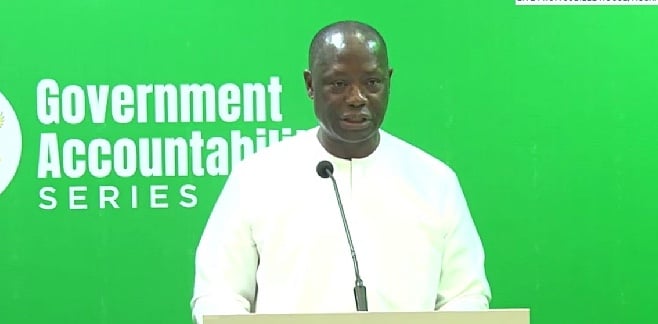The Ghanaian government, under the leadership of the Minister for Lands and Natural Resources, Emmanuel Armah-Kofi Buah, has embarked on a comprehensive initiative to combat the devastating effects of illegal mining, commonly known as “galamsey,” on the nation’s water resources. This initiative, termed the Blue Water Initiative, is a multi-phased strategy designed to protect and restore Ghana’s rivers and streams. The first phase, already underway, focuses on deploying personnel, known as Blue Water Guards, to monitor and safeguard vulnerable water bodies. The second phase, announced by Mr. Buah, represents a shift towards addressing the chemical pollution caused by illegal mining activities. This new phase will prioritize “de-chemicalizing” affected water bodies, essentially reverting them to their original, uncontaminated state. Feasibility studies are currently in progress to pave the way for this ambitious undertaking.
The Blue Water Initiative, launched within the government’s first 120 days, highlights the administration’s commitment to addressing a critical environmental challenge. Illegal mining has severely impacted Ghana’s water systems, contaminating rivers and streams with harmful chemicals like mercury and cyanide, used in the gold extraction process. These chemicals not only pollute the water but also pose serious health risks to communities that rely on these water bodies for drinking, fishing, and agriculture. The initiative recognizes the urgency of the situation and aims to reverse the damage caused by these illicit practices. The government’s commitment extends beyond immediate protection to encompass long-term restoration, ensuring that future generations have access to clean and safe water resources.
The first phase of the Blue Water Initiative has focused on establishing a robust presence on the ground. Over 450 Blue Water Guards have been trained and deployed to monitor and protect vulnerable water bodies. Unlike traditional enforcement units, these guards prioritize intelligence gathering and community engagement. They act as a bridge between the government and local populations, raising awareness about the destructive consequences of illegal mining and fostering a sense of shared responsibility for environmental protection. This approach emphasizes collaboration and education, seeking to empower local communities to participate actively in safeguarding their natural resources. An additional 530 officers are set to graduate soon, bringing the total number of deployed personnel to 980, with a target of 2,000 by the end of the year.
The second phase marks a significant advancement in the government’s strategy. It signifies a move beyond simply protecting water bodies to actively restoring them. This will involve complex technical interventions to remove the chemical contaminants that have polluted Ghana’s rivers and streams. The feasibility studies currently underway will determine the most effective and sustainable methods for achieving this goal. This phase represents a more scientific and technologically driven approach, tackling the root causes of the water pollution problem. The focus on de-chemicalizing reflects a commitment to restoring the natural integrity of Ghana’s waterways, not just mitigating the immediate effects of pollution.
The Blue Water Guards play a crucial role in the initiative’s success. Their approach differs significantly from traditional law enforcement. Rather than relying solely on force, they focus on building relationships with local communities, educating them about the environmental damage caused by galamsey, and gathering intelligence to inform more effective interventions. They operate as community liaisons, fostering collaboration and shared responsibility for protecting water resources. This strategy emphasizes prevention and education, engaging local communities as partners in the fight against illegal mining. This collaborative approach recognizes the importance of local knowledge and participation in achieving sustainable environmental protection.
The Blue Water Initiative represents a comprehensive and multifaceted approach to tackling the complex challenge of illegal mining in Ghana. It combines on-the-ground monitoring and enforcement with community engagement and education, and now moves into the realm of active environmental remediation. The initiative signals a strong commitment from the Ghanaian government to address the root causes of water pollution and restore the health of the nation’s vital water resources for present and future generations. The Minister for Lands and Natural Resources has emphasized the government’s dedication to environmental sustainability and has promised further updates as the program expands nationwide. The Blue Water Initiative stands as a testament to the government’s resolve to protect Ghana’s natural heritage and ensure a sustainable future for its people.


